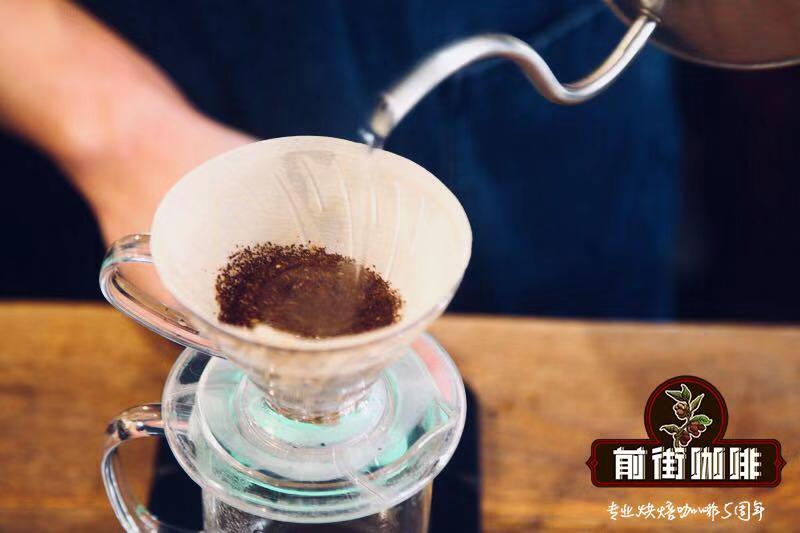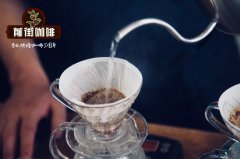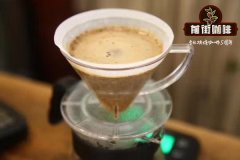Have a heart of communication | learn all kinds of professional terms in the coffee industry

Professional coffee knowledge exchange more coffee bean information please follow the coffee workshop (Wechat official account cafe_style)
For friends in the coffee industry, the technical term for coffee can be blurted out, which is one of the basic conditions for a barista's self-cultivation. Although casually saying a lot of technical terms will not make a cup of coffee tastier, it is a necessary knowledge to communicate with coffee fans, and it is also what they expect.
There are many professional terms about coffee, from coffee seeds to brewing, if you are interested, you can follow to learn!
1. Extraction terminology
Powder-to-water ratio: refers to the ratio of coffee powder to water, the amount of water in different coffee beans is different, in order to extract coffee with balanced flavor and good taste, so the ratio of powder to water is very important.
Extraction: the word extraction comes from Latin and means to squeeze a substance out or to obtain an extract. The common extraction method is to use hot water to extract flavor substances from coffee powder.
Insufficient extraction: it means that the contact time between hot water and coffee powder is not long enough, not enough flavor substances are obtained from coffee powder, or enough flavor substances can not be extracted from coffee powder. When drinking the coffee with insufficient extraction, the flavor is weak, the taste is thin, the back segment is like water, and the aftertaste is short. The reasons for the lack of extraction: 1. The degree of grinding is 2. The water temperature is 3. 5% lower. The cooking time is short.
Excessive extraction: refers to the hot water and coffee powder contact time is too long, whether Italian coffee or hand-brewed coffee, the basic reason for over-extraction is too fine grinding, extraction time is too long, the water temperature is too high. If you extract too much coffee, the flavor will become irritating, the taste will be too bitter, and the woody taste will be obvious.
Extraction time: refers to the duration of contact between coffee and water, which is one of the important factors in coffee extraction. When making coffee, the soaking time and brewing time also refer to the extraction time.

2. Coffee bean terminology
Coffee belt: take the equator as the center, between the north and south latitudes of 25 degrees, called the coffee belt, this area is the most suitable for growing coffee.
Cowpeas / soybeans: coffee cherries contain two coffee seeds, called mother beans, and some of the fruits have only one seed when they ripen. This oval coffee bean is called a cod bean. Because there is only one seed, it absorbs more nutrients, and the color, shape and particles of coffee beans are larger.
Elephant beans: the giant of coffee beans, larger than the average coffee bean.
Aged beans: the natural aging of raw beans is achieved by prolonging the storage time (usually 2-3 years). These changes include weakening acidity, color change and thickening of beans. The storage environment must be cool and ventilated.
Coffee exhaust: coffee will continue to emit carbon dioxide after roasting, and coffee bags will swell as a result of coffee exhaust.
Bean cultivation period: coffee beans can not be boiled immediately because they have not reached the most mature stage after baking, so it is necessary to give coffee beans some time. Bean cultivation is the process of "gas release", also known as awakening beans.

3. Terminology for coffee utensils
Bean warehouse: located above the bean grinder, only used to store coffee beans.
Dial: a part used to adjust the thickness of coffee powder.
Powder cartridge: a part used to store coffee beans and grind them into powder.
Quantifier: a quantitative tool for coffee powder, also known as a manual pick, which allocates the amount of coffee powder by hand.
Powder press: also known as filler, mainly used for compacting coffee powder, the density is as uniform as possible, so that when hot water penetrates the coffee cake, the essence of coffee can be extracted evenly!
Channel effect: refers to coffee powder cloth powder or uneven filling pressure, water will choose the path with the least resistance when passing through coffee powder.
Powder distributor: the use of the powder distributor is very simple, just adjust the penetration depth according to your needs, and then rotate gently clockwise to flatten the "powder bed".
Blind bowl: a powder bowl without a water outlet, mainly used to clean the cooking head and internal pipes of an Italian coffee machine.
Crema: a layer of creamy substance on the surface of espresso, which is the essence of Espresso, also known as coffee oil
Barista: barista, Italian respect for professional coffee practitioners.
Tasting period: refers to the best flavor of freshly roasted coffee, usually one month

4. Baking terminology
Input bean temperature: refers to the temperature of the entry point, that is, "input bean temperature", which is judged by the water content of raw beans.
Temperature recovery point: refers to the temperature point at which the coffee bean falls to the lowest point and begins to rise after it is put into the oven.
Explosion: the bursting reaction of coffee beans when the temperature is 190 Mol and 200 degrees during roasting.
Mena reaction period: also known as flavor compounds, is a series of reactions between reducing sugars and protein / amino acids in food when heated.

There are too many technical terms about coffee, so I can only give you a few here. Coffee is not just a simple drink, but a kind of culture, a kind of trust, a small coffee bean in the eyes of others, but in our eyes is a "universe".
END
Important Notice :
前街咖啡 FrontStreet Coffee has moved to new addredd:
FrontStreet Coffee Address: 315,Donghua East Road,GuangZhou
Tel:020 38364473
- Prev

Do you want to remove the silver skin of coffee?| Coffee silver skin with astringent taste? Effect of Silver Peel on Coffee Flavor
Professional coffee knowledge exchange More coffee bean information Please pay attention to coffee workshop (Weixin Official Accounts cafe_style) A cup of successful coffee starts from a coffee bean. The processing method of coffee beans can be divided into solarization method and washing method. The specific method to be used depends on the local climate, environment and characteristics of coffee beans. Coffee beans pass through.
- Next

What kind of coffee beans are suitable for ice drop coffee? introduction to the taste and characteristics of ice drop coffee
Professional coffee knowledge exchange more coffee bean information please pay attention to coffee workshop (Wechat official account cafe_style) ice drop coffee production, the key is cold and slow in the equipment top container of ice water, through the valve control, drop by drop infiltration coffee powder, coffee liquid after a filter, gradually collected at the bottom
Related
- Beginners will see the "Coffee pull flower" guide!
- What is the difference between ice blog purified milk and ordinary milk coffee?
- Why is the Philippines the largest producer of crops in Liberia?
- For coffee extraction, should the fine powder be retained?
- How does extracted espresso fill pressed powder? How much strength does it take to press the powder?
- How to make jasmine cold extract coffee? Is the jasmine + latte good?
- Will this little toy really make the coffee taste better? How does Lily Drip affect coffee extraction?
- Will the action of slapping the filter cup also affect coffee extraction?
- What's the difference between powder-to-water ratio and powder-to-liquid ratio?
- What is the Ethiopian local species? What does it have to do with Heirloom native species?

